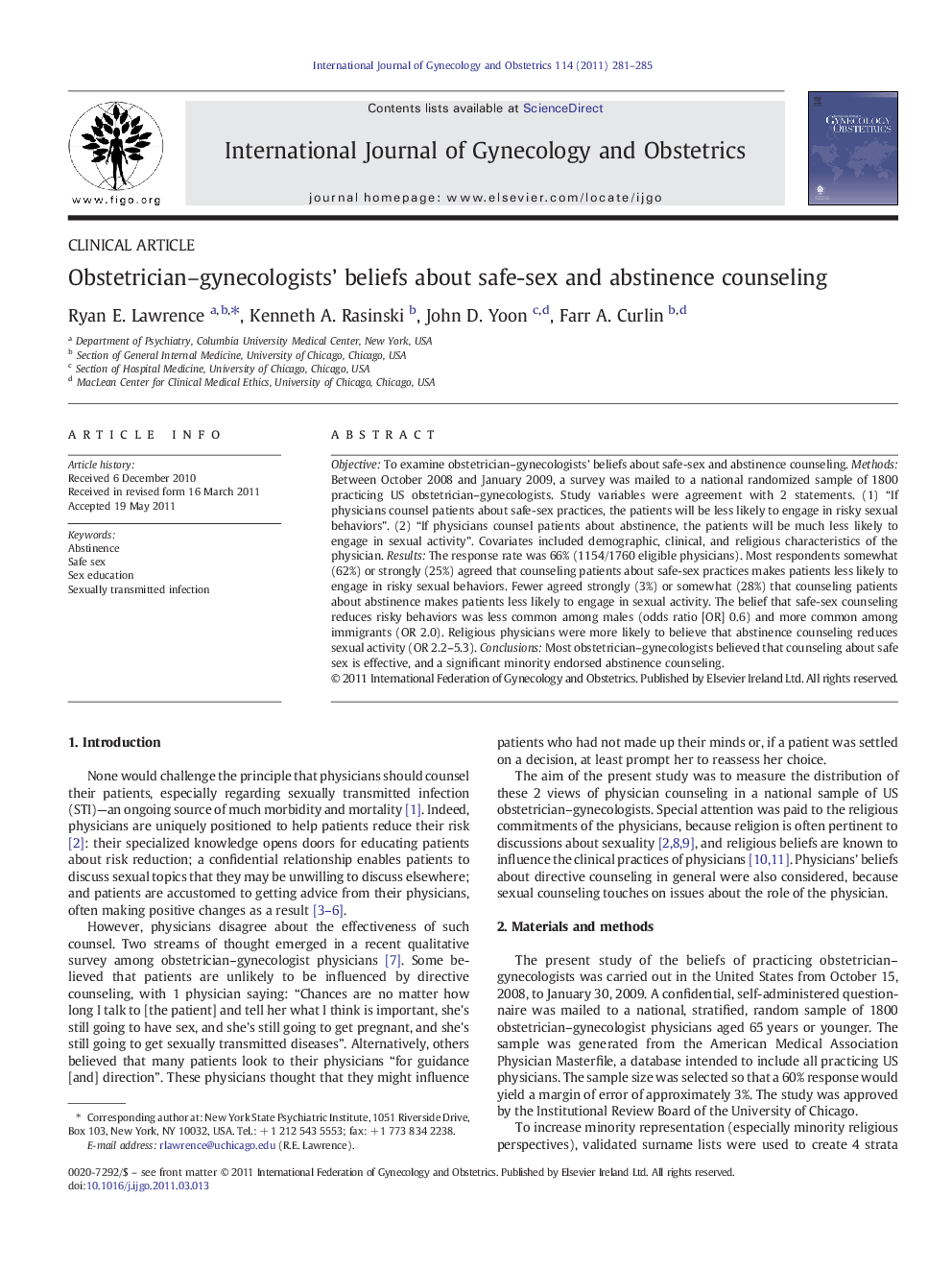| Article ID | Journal | Published Year | Pages | File Type |
|---|---|---|---|---|
| 3949394 | International Journal of Gynecology & Obstetrics | 2011 | 5 Pages |
ObjectiveTo examine obstetrician–gynecologists’ beliefs about safe-sex and abstinence counseling.MethodsBetween October 2008 and January 2009, a survey was mailed to a national randomized sample of 1800 practicing US obstetrician–gynecologists. Study variables were agreement with 2 statements. (1) “If physicians counsel patients about safe-sex practices, the patients will be less likely to engage in risky sexual behaviors”. (2) “If physicians counsel patients about abstinence, the patients will be much less likely to engage in sexual activity”. Covariates included demographic, clinical, and religious characteristics of the physician.ResultsThe response rate was 66% (1154/1760 eligible physicians). Most respondents somewhat (62%) or strongly (25%) agreed that counseling patients about safe-sex practices makes patients less likely to engage in risky sexual behaviors. Fewer agreed strongly (3%) or somewhat (28%) that counseling patients about abstinence makes patients less likely to engage in sexual activity. The belief that safe-sex counseling reduces risky behaviors was less common among males (odds ratio [OR] 0.6) and more common among immigrants (OR 2.0). Religious physicians were more likely to believe that abstinence counseling reduces sexual activity (OR 2.2–5.3).ConclusionsMost obstetrician–gynecologists believed that counseling about safe sex is effective, and a significant minority endorsed abstinence counseling.
